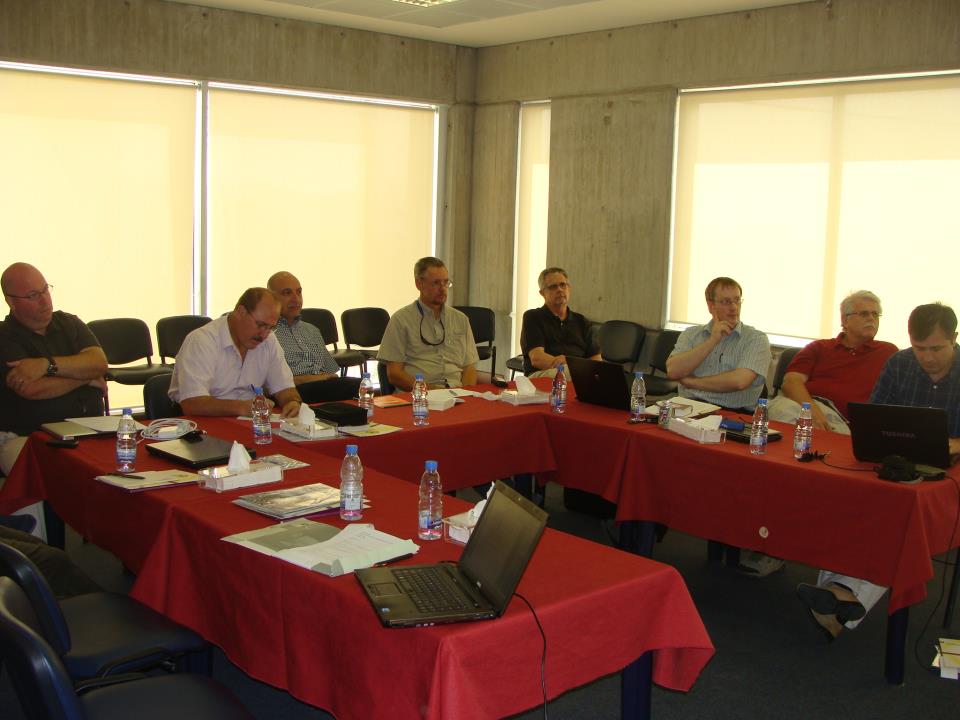Considering the command to love our enemies in relating to Muslims
Considering the command to love our enemies in relating to Muslims


 B e i r u t – In relating to Muslims and Islam, Christians should be guided by the command of Jesus Christ to love their enemies (Luke 6:27 ff) and the appeal by the apostle Paul to overcome evil with good (Romans 12:20-21). Those attending a Round Table of the Theology and Education Division of the European Baptist Federation (EBF) in mid-June in Beirut, Lebanon were in agreement on that subject. Reporting that is marked by fear and that inspires a sense of powerlessness only causes damage. Above all, it is important to establish loving relationships with Muslims. At the same time, problems created by a radical Islamic authority must not be marginalized. At the center of the discussions was the question of how Baptist churches in changing societies can engage in conversation with those societies. In addition to representatives from the Middle East, the meeting at the Arab Baptist Theological Seminary also drew participants from Belgium, Germany, Estonia and Moldavia. The head of the division is Estonian theologian Toivo Pilli (Tartu), who also led the round table discussion. This was the third round table to deal with the topic “Baptist Churches and Changing Society”. The first meeting took place in 2010 in Tallinn, Estonia. The topic was the East European perspective. The second meeting in Elstal, Germany, in 2011, dealt with the West European perspective, and the third, now in Beirut, with the perspective of the Middle East.
B e i r u t – In relating to Muslims and Islam, Christians should be guided by the command of Jesus Christ to love their enemies (Luke 6:27 ff) and the appeal by the apostle Paul to overcome evil with good (Romans 12:20-21). Those attending a Round Table of the Theology and Education Division of the European Baptist Federation (EBF) in mid-June in Beirut, Lebanon were in agreement on that subject. Reporting that is marked by fear and that inspires a sense of powerlessness only causes damage. Above all, it is important to establish loving relationships with Muslims. At the same time, problems created by a radical Islamic authority must not be marginalized. At the center of the discussions was the question of how Baptist churches in changing societies can engage in conversation with those societies. In addition to representatives from the Middle East, the meeting at the Arab Baptist Theological Seminary also drew participants from Belgium, Germany, Estonia and Moldavia. The head of the division is Estonian theologian Toivo Pilli (Tartu), who also led the round table discussion. This was the third round table to deal with the topic “Baptist Churches and Changing Society”. The first meeting took place in 2010 in Tallinn, Estonia. The topic was the East European perspective. The second meeting in Elstal, Germany, in 2011, dealt with the West European perspective, and the third, now in Beirut, with the perspective of the Middle East.
ABTS Professor of Islamic Studies, Martin Accad, examined the question of how Christians might evaluate the Arab Spring. He dismissed conspiracy theories, according to which the current developments in the Arab world are driven by the West or the East. How should Christians in these countries conduct themselves? It is a matter of fundamentally seeking selfless justice, urged Accad. He rejected an ethic of pragmatism, which primarily seeks to discover, which government would provide the best situation for Christians. That would be a self-serving stance. Especially in times of crisis, Christians should be guided by the command to love their neighbor. In Accad’s estimation, it is impossible to say which of the two civil war parties would be the better option for Christians. It is important to treat each other with openness and respect and thus build bridges of mutual understanding. Accad considers an agreement between five Muslim Brothers and 17 Coptic Evangelical leaders in Egypt to be exemplary. They recently agreed on shared values.
ABTS instructor Arthur Brown presented his research project, which deals with the question of whether an Evangelistic ministry to young people in a multi-religious, specifically Muslim, context can fit in with the culture. On the one hand, evangelical Christians in Lebanon want to confess boldly the gospel of Jesus Christ. At the same time they want to approach the existing cultures and traditions with sensitivity and esteem. Brown said he wants to demonstrate how it is possible to follow Christ while remaining culturally Muslim. His research work is part of a project that is meant to lead to a doctoral degree. Baptist pastor Hanna Massad (Amman, Jordan), who once worked in the Gaza Strip, reported on his work among refugees in Jordan. In order to serve people in need, an attitude of forgiveness and love is necessary.
Pastor Victor Ormanzhi reported a groundbreaking development in Moldavia, where he ministers. At the Academy for Theology and Education in the capital Kishinev, Christians are specially trained for missionary work among Muslims in Central Asia. Students from over 20 countries of the former Soviet Union are enrolled there, he said. According to him, the training is worthy of notice precisely because there is not a single mosque in Moldavia and Islam was only officially registered as a religious community in 2012. Following the round table, the EBF moved right into the 9th Middle East Conference. This dealt with the situation of the up to 350,000 Palestinian refugees in Lebanon. “Respect is essential for these interactions. As Christians, we are more and more perceived as people who want to serve society and not as being self-serving,” said Alia E. Abbound, the Director for Development and Partnerships for the Lebanese Society for Educational and Social Development (LSESD).